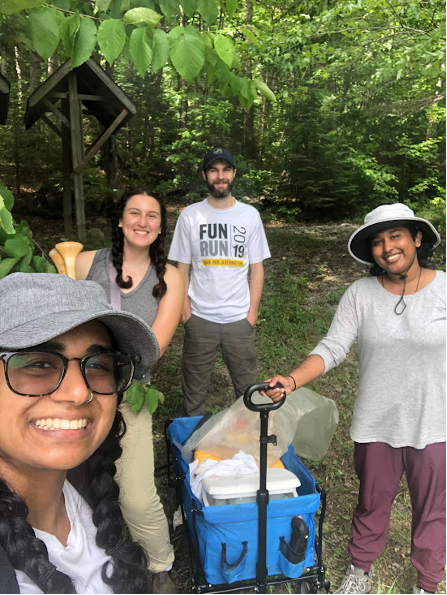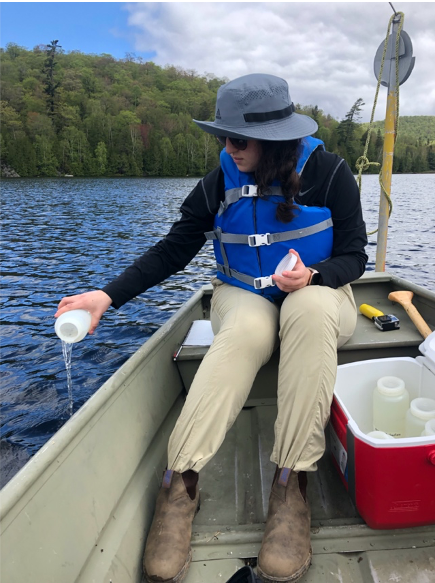|
Hadeel Abed, MSc forWater Webinar Thursday May 25, 2023 – 1:00 pm  Webinar description: The long evolutionary history of gram-negative cyanobacteria has enabled them to tolerate extreme conditions, succeed in numerous habitats, and exploit special nutrients, all while resisting harmful anthropogenic and climate change exacerbated influences. Increases in harmful cyanobacterial blooms (cHABs) pose considerable challenges to the provision of safe drinking water globally. Although cyanobacterial blooms are most often present in eutrophic lakes, there is less research focus in oligotrophic lakes. If undetected, cyanobacteria may release toxic metabolites into drinking water sources and if left untreated, these toxins threaten drinking water security, especially from infrequently monitored source waters. In this study, the distribution of cyanobacterial communities across Canada were investigated from five major forested ecozones: Atlantic and Pacific Maritime, Boreal Shield and Plains, and the Montane Cordillera. This research demonstrated that cyanobacteria are highly widespread, there is very little biogeographic clustering in any of the ecozones (despite distinct biomes), and there is a significant gap in understanding the predominance, diversity, and activity of sequenced picocyanobacteria. This webinar will underscore the utility of next generation sequencing techniques in characterizing the seasonal distribution of toxin gene families, microcystin and lipoxygenase, and nitrogen metabolism genes families: cyanase, nitrogenase, and a global nitrogen regulator to better inform eutrophication potential and threats to the provision of safe drinking water. Bio: Hadeel Abed is completing a Master of Science degree with a Water Specialization, in the Department of Biology at the University of Waterloo under the supervision of Dr. Kirsten Müller. She obtained her BSc., also from UW, with a Joint Honours Biology and Anthropology degree, and a specialization in Animal Biology. Hadeel’s honours thesis project aimed to engineer methanotrophic bacteria to grow on glycerol media for easier cultivation in laboratories. Upon completion of her Master’s, Hadeel is excited to enter the workforce, hoping to work with government or private agencies to help improve monitoring policies and programs, and use next generation sequencing to better understand the active threats cyanobacteria potentially have on our water systems.
0 Comments
Leave a Reply. |
forWater NetworkThe Network provides insights into new scientific research for safe, secure drinking water---globally---which starts with resilient forests Archives
October 2023
Categories |



 RSS Feed
RSS Feed

